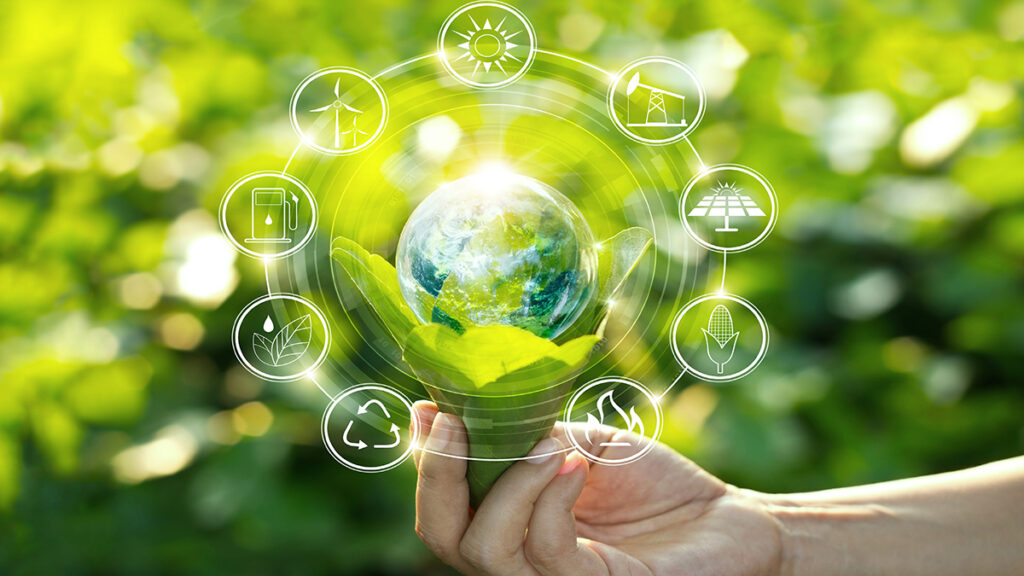
There are many ways that new technological advancements can be used to help save the planet. Some of the most promising include:
- Renewable energy: One of the biggest contributors to climate change is the burning of fossil fuels for energy. New technologies such as solar panels, wind turbines, and geothermal power plants are becoming increasingly efficient and cost-effective, making it possible for more and more of our energy to come from renewable sources.
- Electric vehicles: Electric vehicles (EVs) produce zero emissions and are becoming more affordable, making them a viable alternative to gas-powered cars. With the development of new battery technologies, EVs are becoming increasingly efficient and have a longer range.
- Carbon capture: Carbon capture is a technology that captures carbon dioxide (CO2) from power plant exhausts or other industrial sources and stores it underground. This is an important technology for reducing greenhouse gas emissions and slowing down climate change.
- Energy storage: Energy storage technologies such as batteries and hydrogen fuel cells are becoming increasingly efficient and cost-effective, making it possible to store excess energy generated by renewable sources for later use.
- Smart cities: Smart cities use technology to make urban areas more efficient, sustainable, and livable. For example, smart traffic systems can reduce congestion and air pollution, while smart buildings can conserve energy and water.
- Vertical Farming : Vertical farming is an innovative way of producing food in urban areas that utilizes minimal land and water. This technology uses vertical stacked layers of shelves to grow plants in controlled environment with LED lights, thereby reducing the carbon footprint of traditional farming.
- Recycling technologies: New recycling technologies, such as materials recycling facilities, are making it easier and more efficient to recycle a wider range of materials. This not only conserves resources but also reduces waste and pollution.
- Water purification: In developing countries, lack of access to clean water is a major issue, and new water purification technologies can help to address this problem. For example, ceramic filters and solar disinfection are low-cost and effective ways to purify water.
- Blockchain technology: Blockchain technology can be used to track the origin and movement of products, making it easier to ensure that they are sustainably produced and transported. This technology can also be used to track carbon credits, making it easier to offset carbon emissions.
- Artificial intelligence: Artificial intelligence (AI) can be used to optimize energy consumption, reduce waste, and improve the efficiency of industrial processes. AI can also be used to analyze and predict weather patterns, helping to prepare for natural disasters and mitigate their impact.
Overall, there are many technological advancements that can be used to help save the planet. By investing in and implementing these technologies, we can reduce our impact on the environment and work towards a more sustainable future. However, it’s important to note that technology alone is not enough to solve the climate crisis, it must be coupled with policy changes and a shift in how we live our lives.









Tagged: Blockchain, Blogs, Go Green, renewable energy, technology